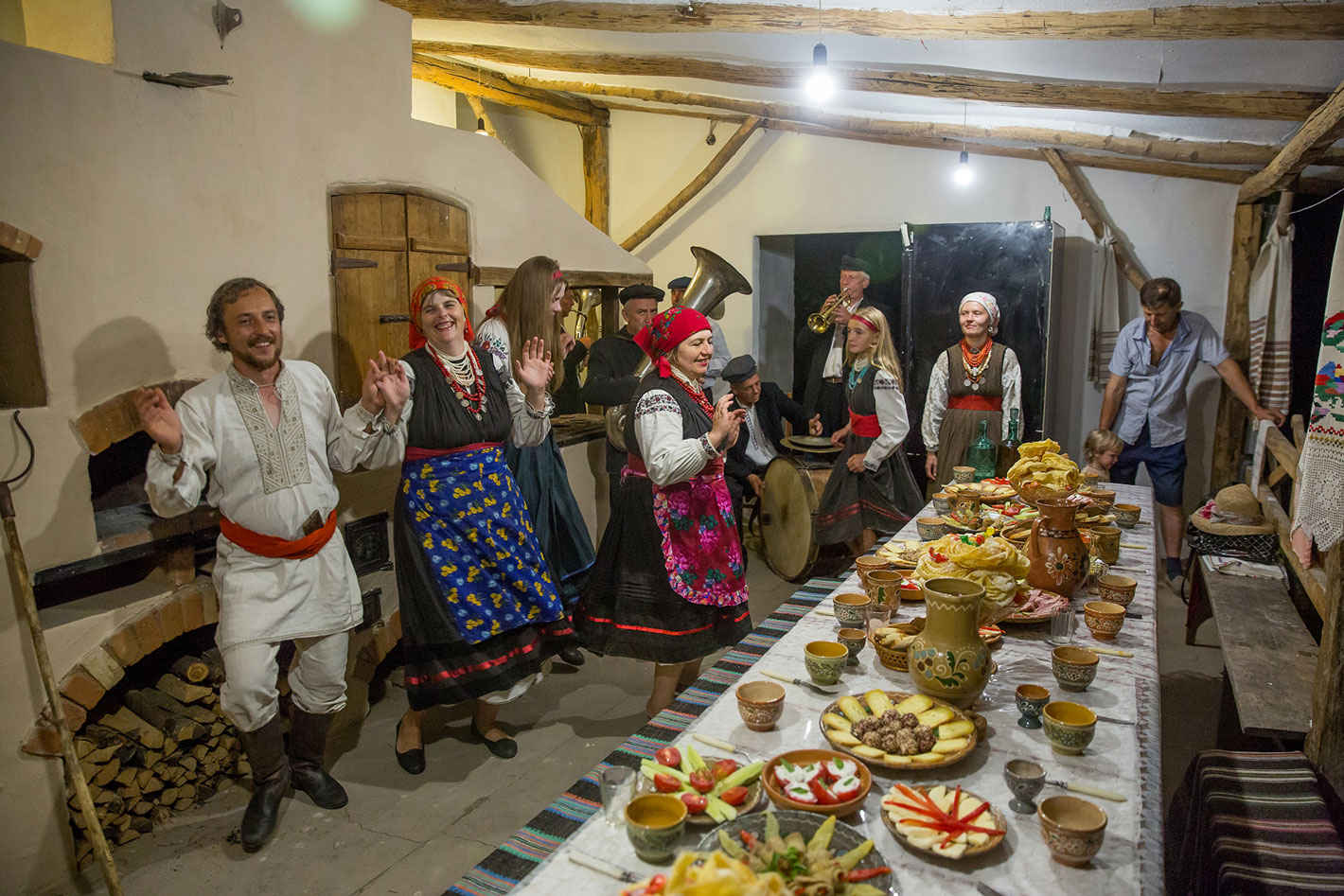The Podillia village of Shershentsi lies in the valley of the Bilochi river, on the border with Moldova. After living for 35 years in a big city, Dmytro Skoryk and his wife Nadiia moved here from Odesa. It took them a few years to set up an ethnic-style estate, create their own brand and start production. Their activity has already affected the mindset of the locals.
Today, on the Bilochi estate, the couple hosts tourists, as well as producing organic dairy products that can be tasted on the spot or purchased in shops in Odesa.
The Skoryks set themselves a challenge: to go back to the traditions of their ancestors and prove to themselves and others that nowadays it is totally possible to work on your land and be independent.
The dairy brand “From Pantiusha” was launched 5 years ago, and since then, production has grown dramatically.
— We’ve created a real production facility; we make over 20 kinds of dairy products, — says Dmytro Skoryk. — Kefir, baked milk, traditional yogurt with bifidobacteria, yogurt with fruits, Greek yogurt, strained yogurt, which is now in high demand. Our dairy products can be either skimmed — for example, yogurt with bifidobacteria — or full-fat, like riazhanka (fermented baked milk — ed.) and sour cream. We make matsoni from whole milk. We also make drinkable yogurt with organic syrups.
The production facility employs up to 10 people; the most experienced employee has been working here since the very beginning.

Every day they process 50 to 70 litres of milk into yoghurt. Forty litres of milk can be turned into 5 kilograms of soft cheese. The Skoryks, however, are ready to increase production if consumer demand for their produce is high enough:
— As long as we can sell it, we are already capable of processing up to 300 litres of milk.
The fermentation process takes place in special heating cabinets that maintain the required temperature, which is the basis of thermostatically controlled manufacturing. The ready product can be preserved for around 10 days.
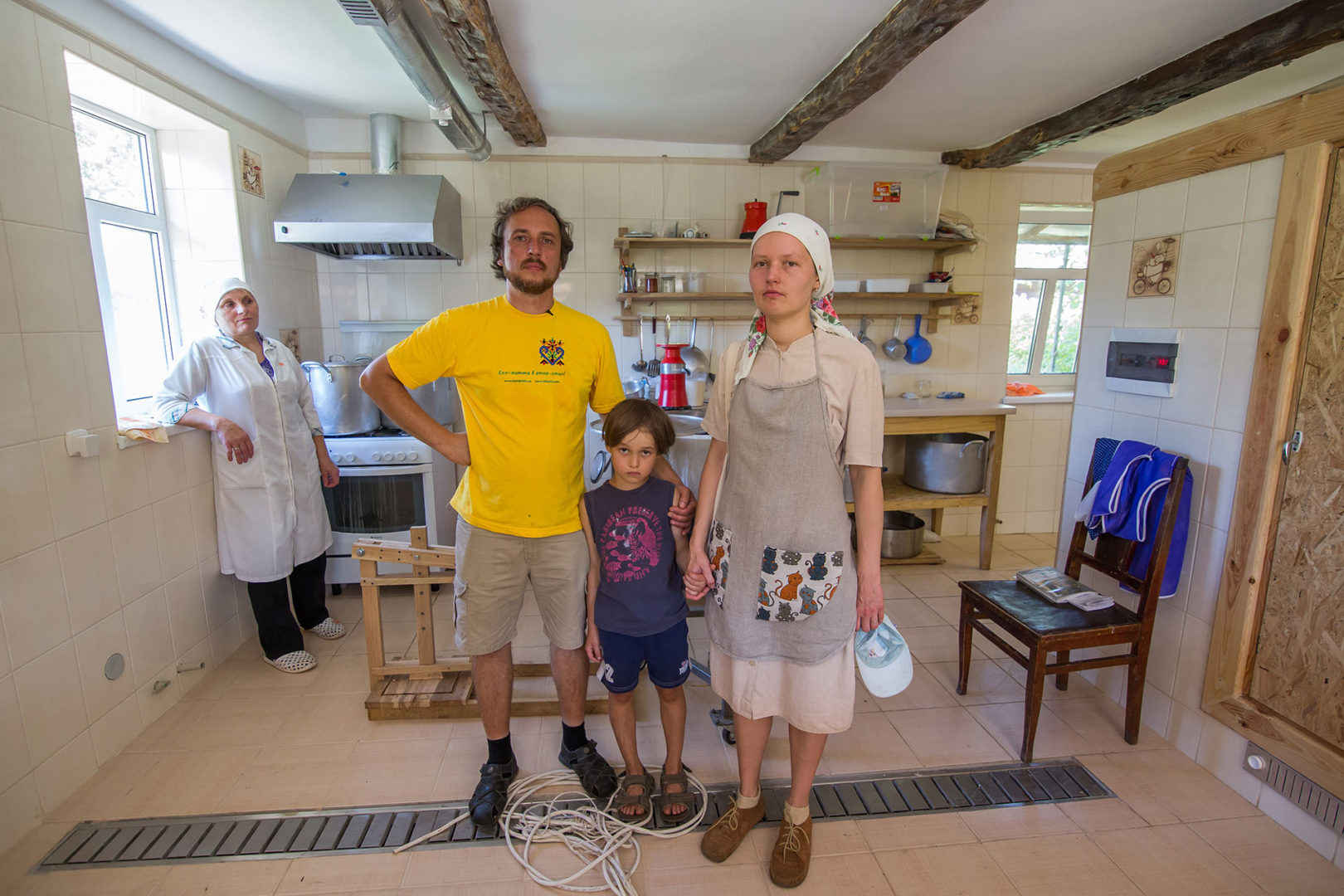
How production started
As soon as they moved to Shershentsi, the Skoryks set up an estate for ecotourism, as Dmytro says:
— We began with green tourism, but it didn’t turn green all at once.
Gradually, tourists found out about the place, but the family needed a more stable income:
— There was no investment in advertising. It was going to take time for people to find out that there was a green estate here, where you can stay and have a rest; in the meantime, we needed to make a living.
They decided to start making and selling organic produce, which was then gaining momentum in Odesa, as Nadiia says:
— We had pickled and salted products — what we made ourselves. Dmytro then said there was a high demand for organic products; it was the new wave. And that was the case 5 years ago.
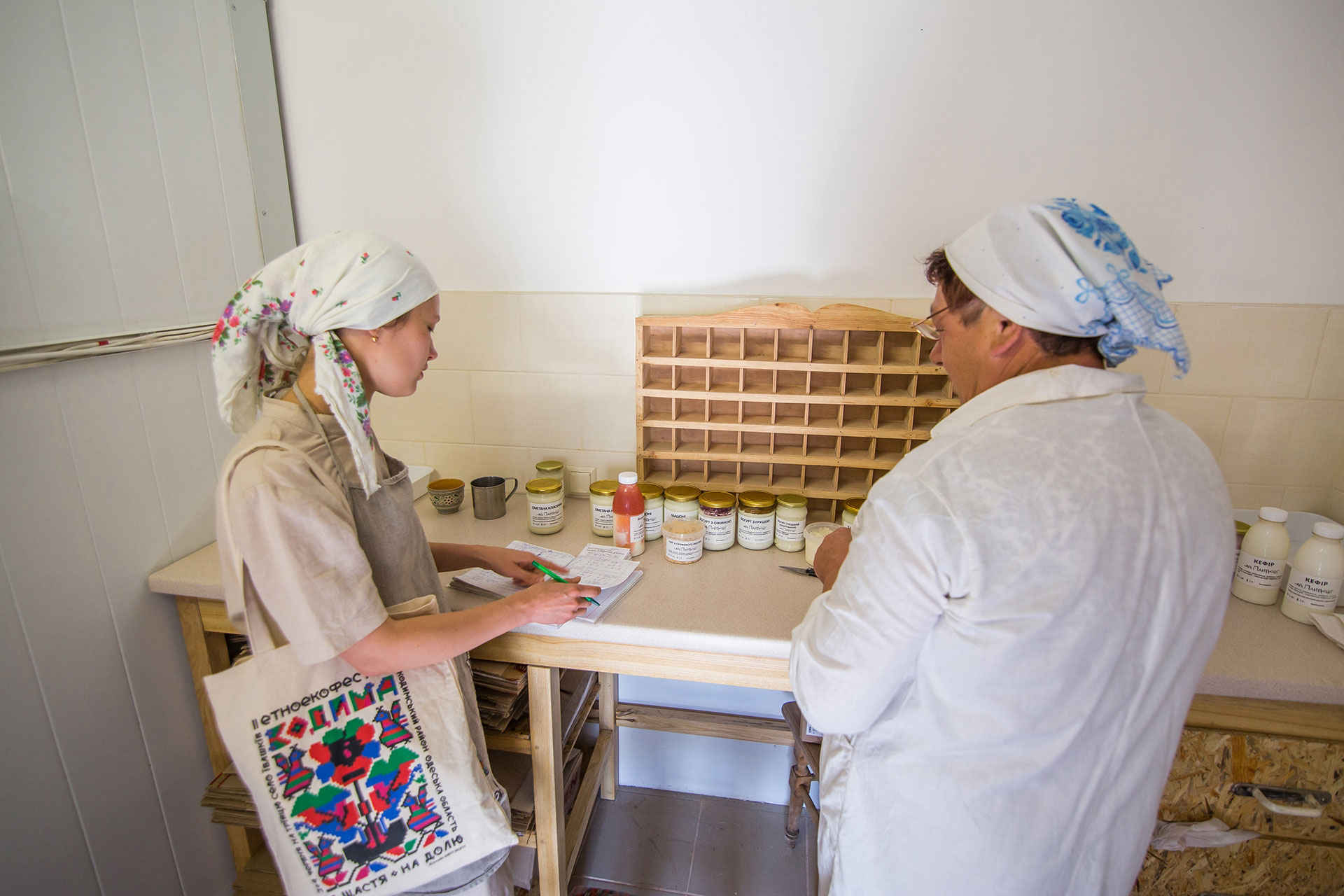
Later on, Dmytro and Nadiia realised that pickles alone were not enough:
— We started making pickled apples from our garden, then pickled cucumbers, but Dmytro said that wasn’t the answer. We couldn’t make a living from that. Then he suggested that we make dairy products. People consume dairy products every day, while apples and cucumbers aren’t that popular.
Before making yogurts, Dmytro and Nadiia tried to make cheese:
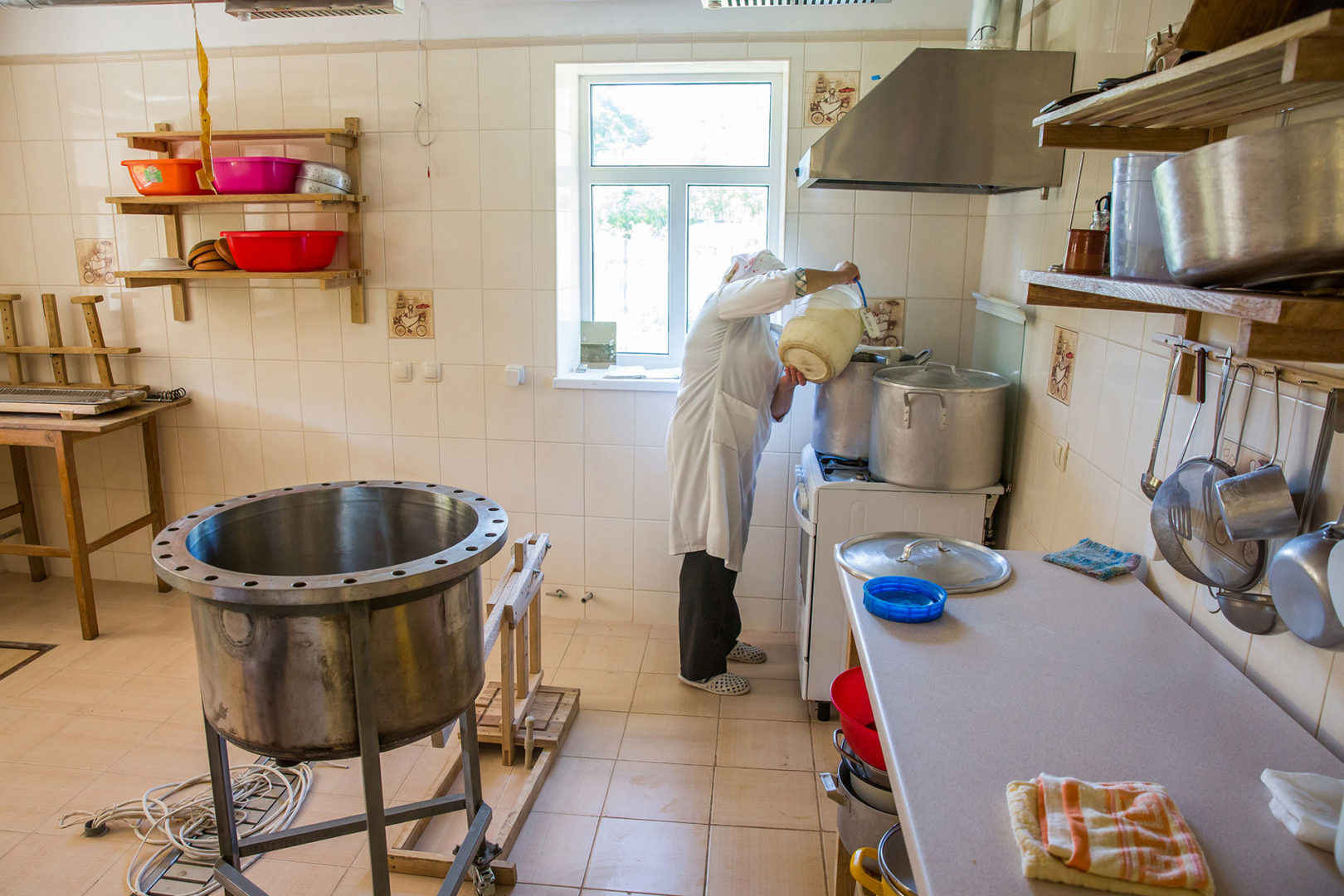
— Cheese-making is the most demanding process in terms of technology. Cheese is like a baby: you have to wash it, wipe it, dry it; you have to play with it for a long time. And step by step, with that cheese came an understanding of what we could do to offer the public. It turned out that yogurts were easier to make than cheese.
As they gained experience and new skills, the Skoryks improved their production techniques:
— We didn’t come to the thermostatic method straight away. At first, we simply fermented the mixture in milk churns and then poured it into jars. At every stage we developed our knowledge and practical skills.
In the village, not only did Dmytro and Nadiia radically change their lifestyle, but also their professions. Dmytro had majored in biology and worked as a biology teacher in a private school in Odesa for a long time. Nadiia describes her professional transformation:
— I never studied dairy production technology academically. I studied to become a painter. But this (production — ed.) is also a creative process. You need to organise everything, create the labels, the brand.
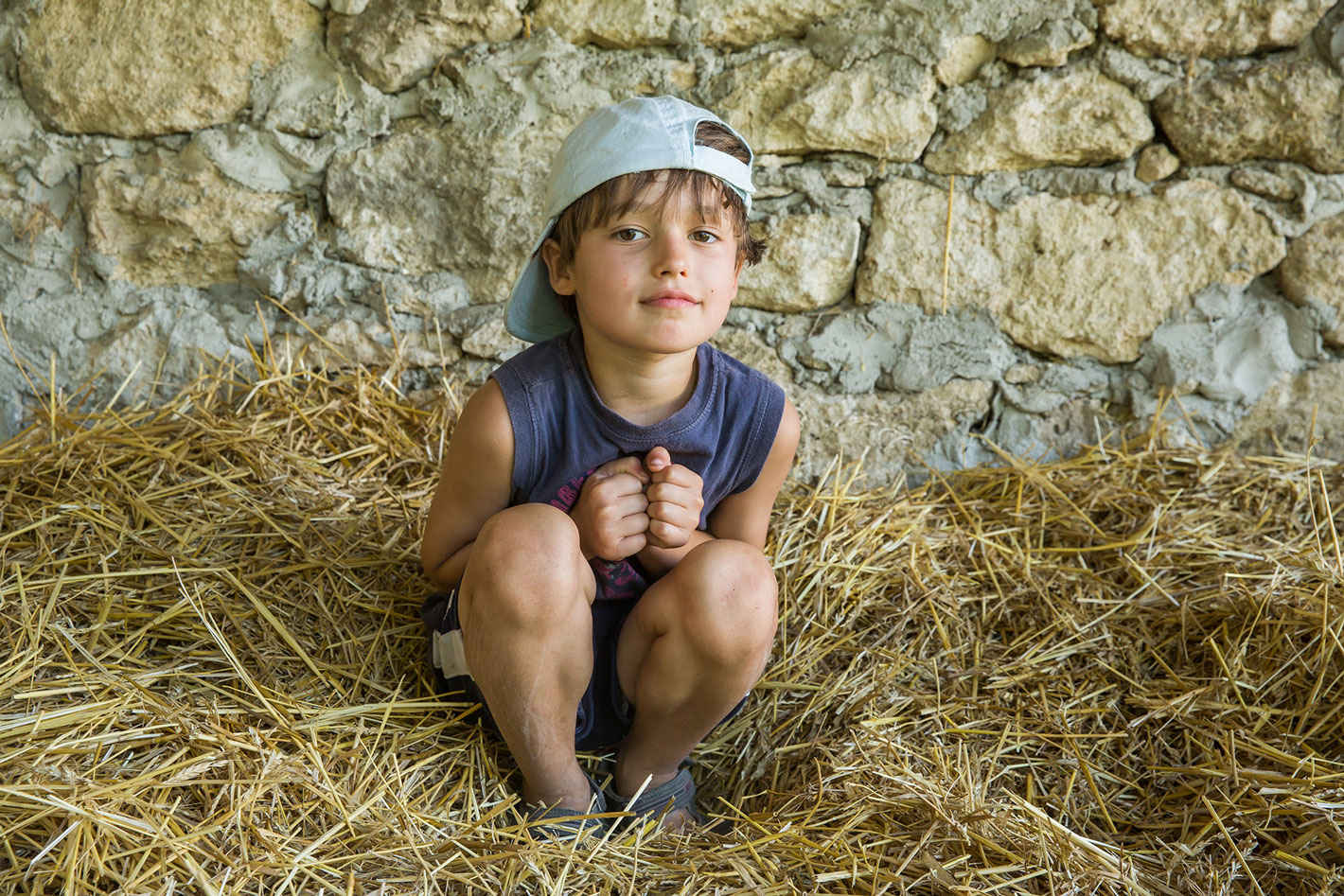
Nadiia also says that the idea itself — along with the brand name “From Pantiusha” — was born with their son Pantelii, whom they nickname Pantiusha:
— We then had a son, and wanted to give him fresh dairy products. We would put our heart and soul into all that. We still do put our soul into each jar. The women who work with us are trying to do it all with love, so that the customers feel it.
The Skoryks sell the fresh produce at their estate, as well as supplying it to eco shops in Odesa. Everything started with a small pan of yogurt:
— The first yogurt was unique, as we made it for ourselves. Dmytro was thrilled as he brought me my red pan and announced, “Here, it’s yoghurt. I made it myself.”
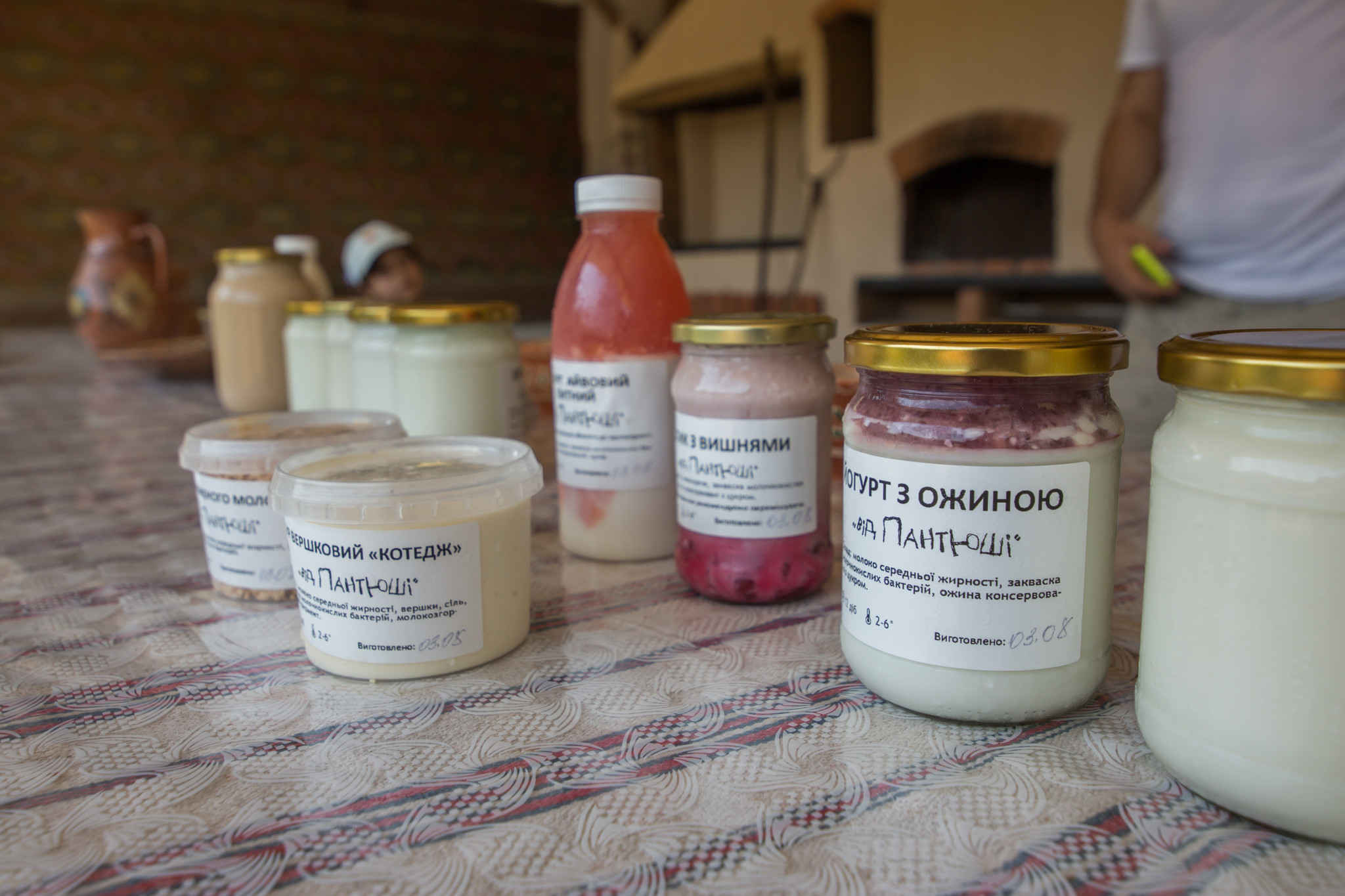
Besides the fermented dairy products which are traditional for Ukraine, the Skoryks have also tried out recipes from other cultures, as Nadiia explains:
— As we were mastering the technology, we started to expand our range and experiment with products from other cultures, like qatiq, for example — it’s a product made in Central Asia. They add cherry juice or beetroot to colour the milk mixture. Later, we stopped making qatiq with beet, because it’s not very popular. People just didn’t get it, but we still do it with cherry. Then there’s another product called turakht — yet another peculiar name. That’s from Central Asia too. It contains bacteria which boost the immune system; it’s a biostimulant.
The production also involves experiments:
— We’ve tried to combine the traditional — names and recipes that belong to our people — with something new. For example, we made our first riazhanka not in the conventional way, but we took a jug, lined it with sour cream, poured in baked milk, put sour cream on top, and left it to ferment. But that isn’t how it’s done in factories.
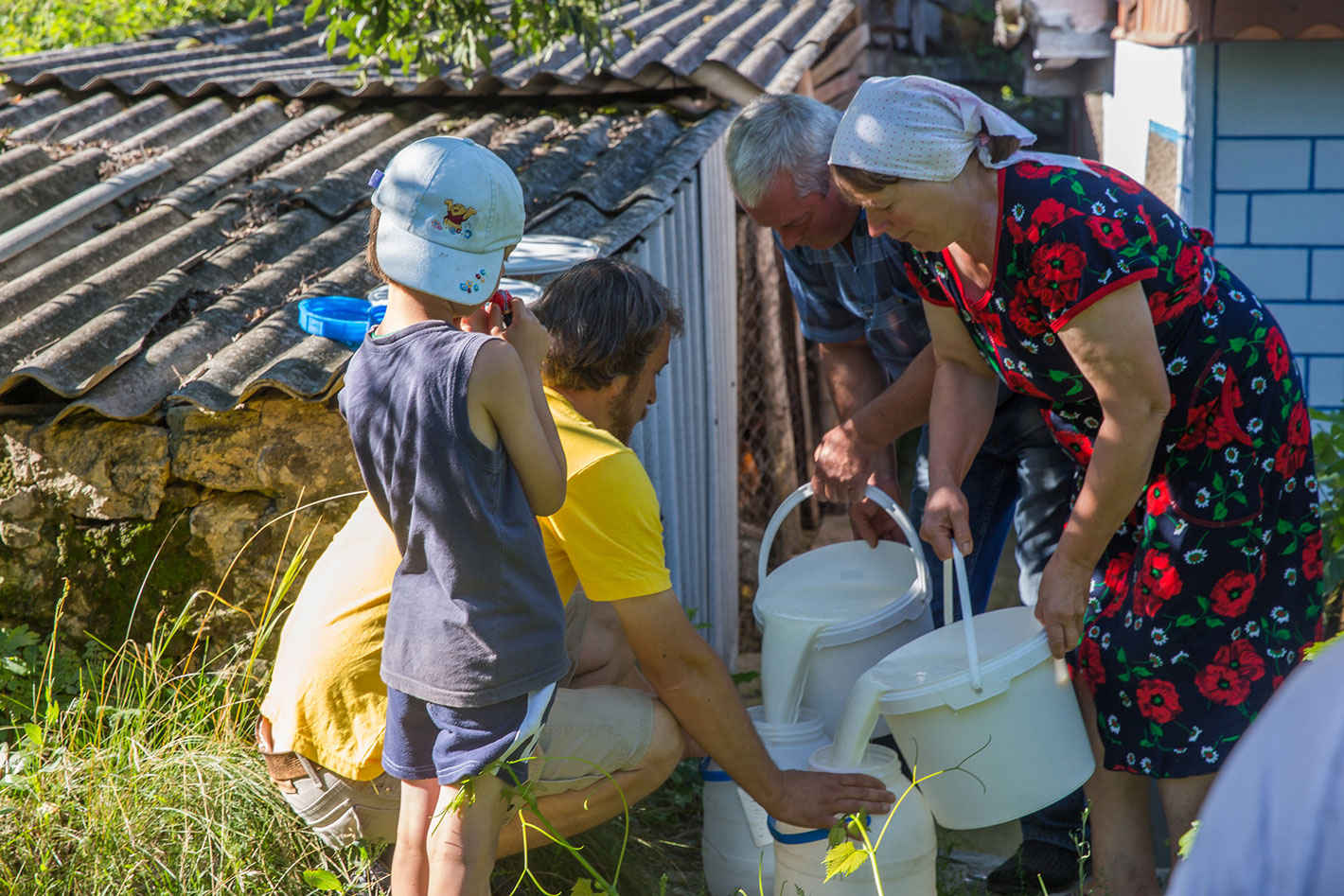
Yogurt
— The fruits we use for the yogurts come from our neighbours. We have really quick recipes: slice some peaches, mix them with sugar, and leave it to make syrup; then we boil it for no more than 5 minutes, and preserve it for the winter yoghurts. We’ve already started a garden, so as to have our own fruits, but for now, we get them from others. We preserve all the berries and fruits that are available.
This is how the yogurt base is made:
— First we make the natural milk mixture, then it sets, then we add natural juice or fruit syrup. So it becomes similar to a shop-bought product, but the critical difference is that it contains no preservatives, stabilisers, thickeners — nothing like that. Just a solid layer of yogurt, with natural syrup or juice on top.
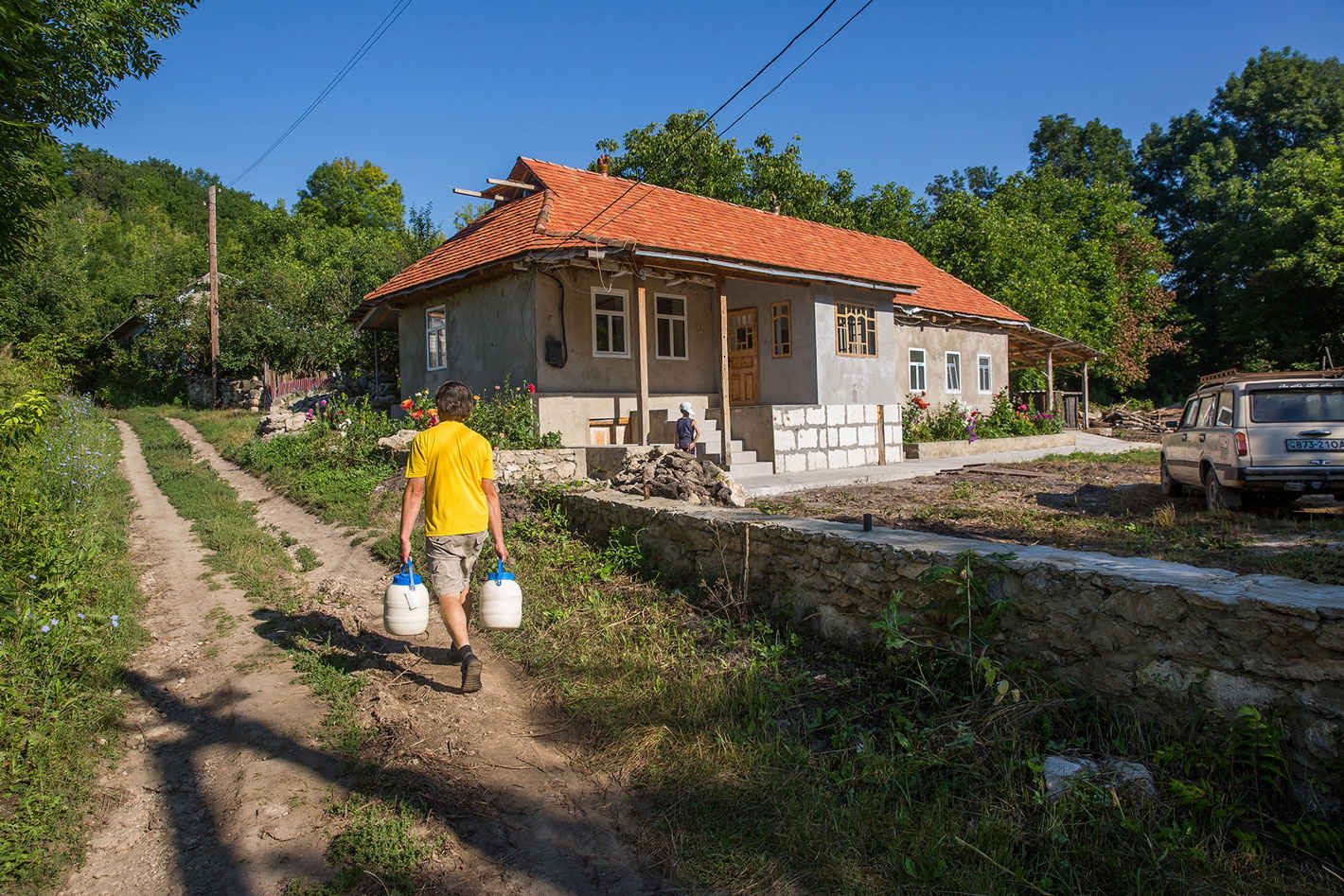
In order to make any of the products in their range, the milk needs to be heated to separate the fat:
— The milk is heated to 45 degrees so that we can separate it, and then it is either boiled or pasteurised depending on which product we’re making.
It typically takes a day for the milk mixture to be prepared and fermented:
— So once we’ve brought in the fresh milk, processed it and poured it into new, clean jars, it ferments in the heating cabinet. That takes all evening and all night. Kefir needs to be fermented until morning, at a temperature of only 28 degrees. And riazhanka, for example, can’t be prepared in one day, because the milk also needs to be baked, and only then fermented and left to set.
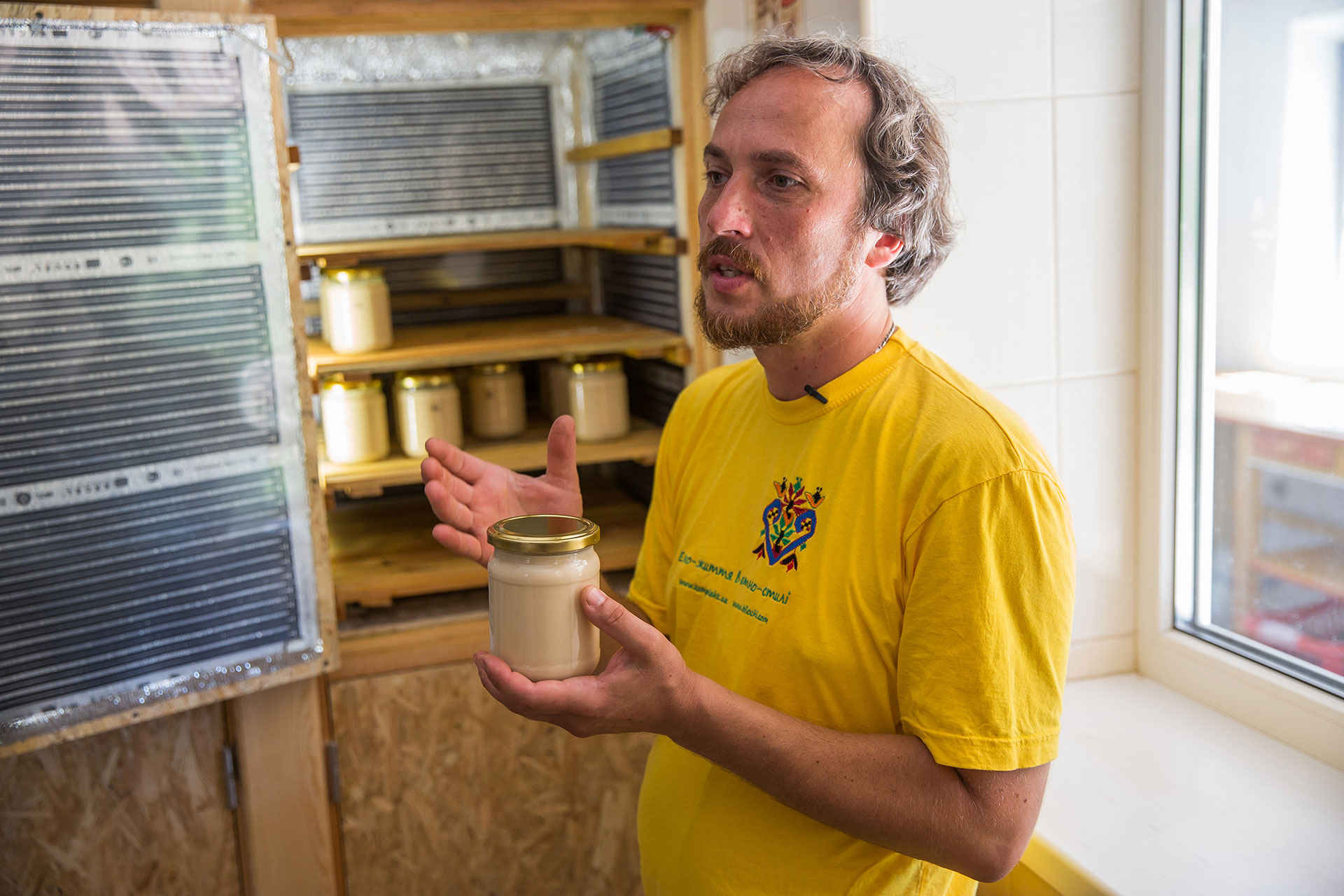
The quality of the milk plays a critical role in how the final product turns out, as Dmytro explains:
— If the milk is diluted, the yogurt will never set properly. It will definitely form a lot of yellow whey and might break.
Acidity also plays an important role in making dairy products. According to Dmytro, while mass production allows for the acidity to be adjusted, no such adjustments are possible in a small facility. Thus, to maintain the acidity at an acceptable level, the milk has to be pure.
In any case, says Dmytro, no method will work if the milk has come from a sick animal:
— The herd is monitored by the relevant authorities, so that the cows get vaccinated on time, and all the necessary veterinary procedures are carried out.
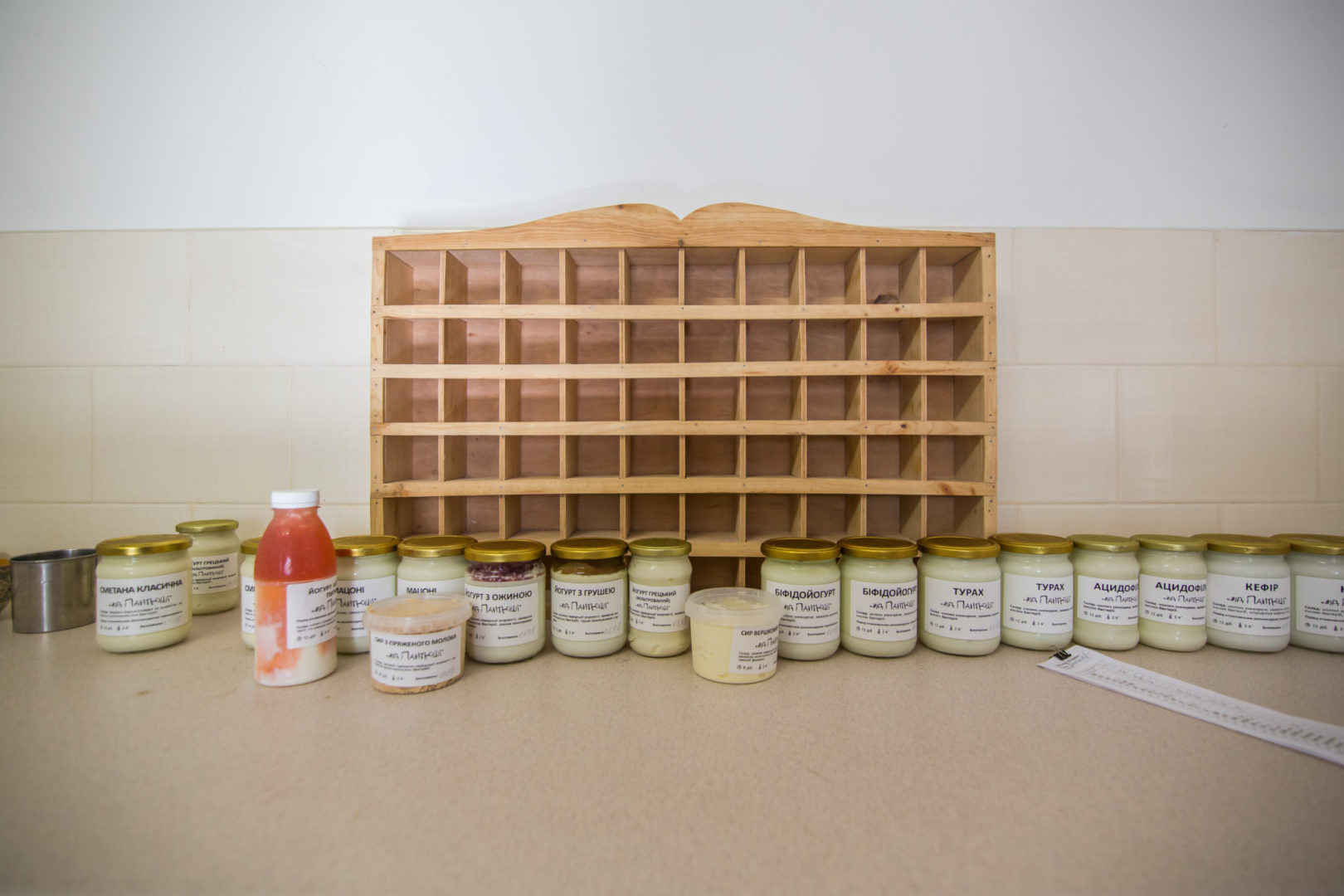
What makes the Skoryks’ production methods so unique?
— We don’t break the product once it sets. I mean, once we’ve poured the fermented milk mixture into jars, it gets sterilised and continues to ferment. We don’t stir it or mix it. We try to preserve the structure of the milk, without interfering.
The city and the village
Now that they have lived for some time in the village, the Skoryks have also seen the pressing problems here:
— It’s very complicated. The situation in our village is critical, but government representatives just don’t understand it. Some programmes could have been set up, but that hasn’t happened. The village is dying. And if we don’t change the situation radically, it will disappear in the near future.
If the village disappears, a huge wealth of traditions will be lost along with it, as there will be nobody to pass these traditions on to:
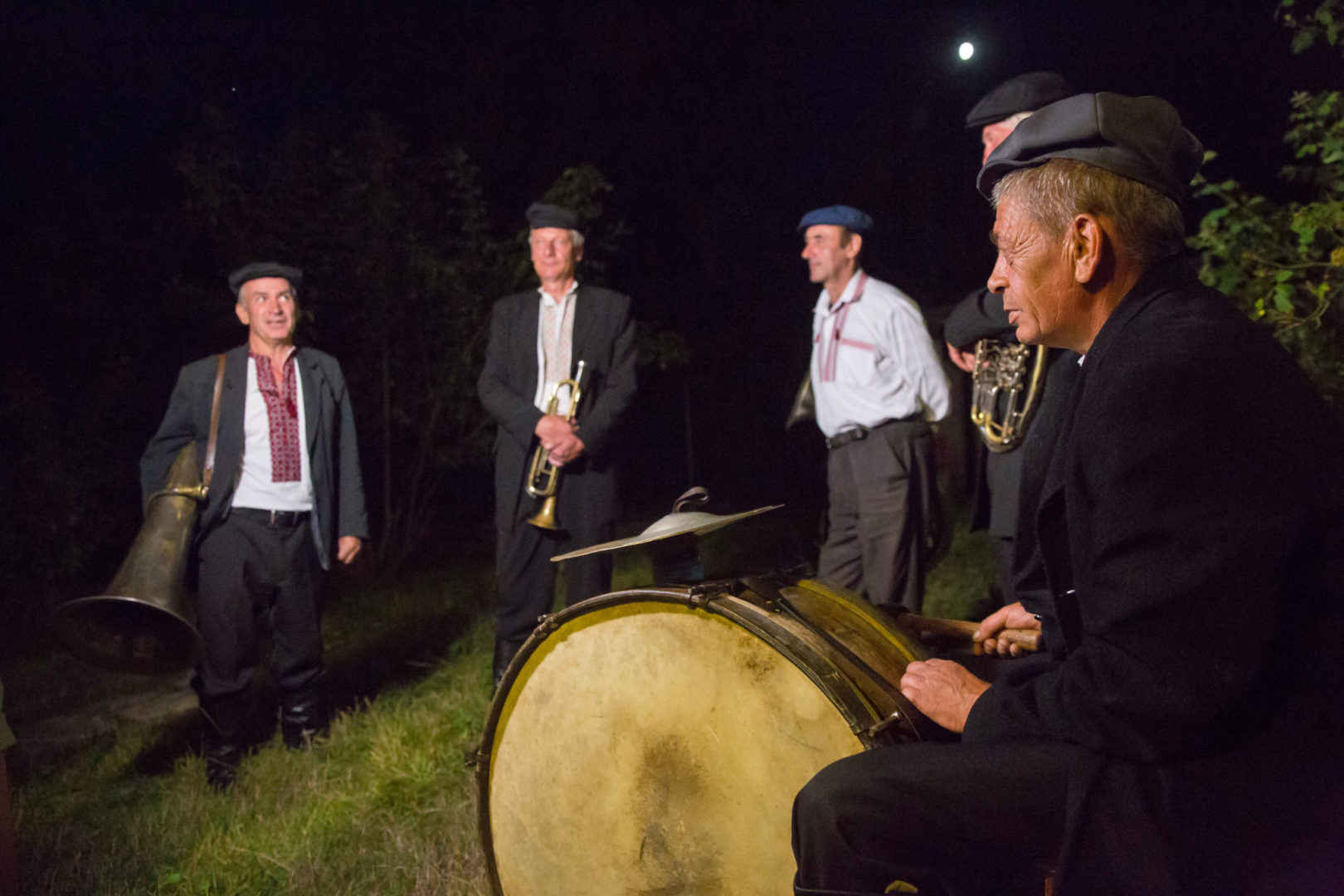
— These people — the elderly — are the carriers of the traditional culture. And we are literally losing them, and losing that knowledge, the “megaknowledge”.
Sometimes traditions are destroyed deliberately, rendered superfluous in order to impose a new way of life:
— The Soviet Union ruined true rural entrepreneurship; few such entrepreneurs are left. People got used to the idea of working on a collective farm and being paid a wage. It is very hard to take on the responsibility, to become an entrepreneur and correct that system.
Still, Dmytro believes it is worth trying: to produce something oneself and consume consciously, the way it used to be done here:
— One person made kitchen utensils, another made things out of wood. They used to make clothes from home-grown materials. There were craftsmen who did everything themselves; that’s how the village made a living. It was completely independent economically.
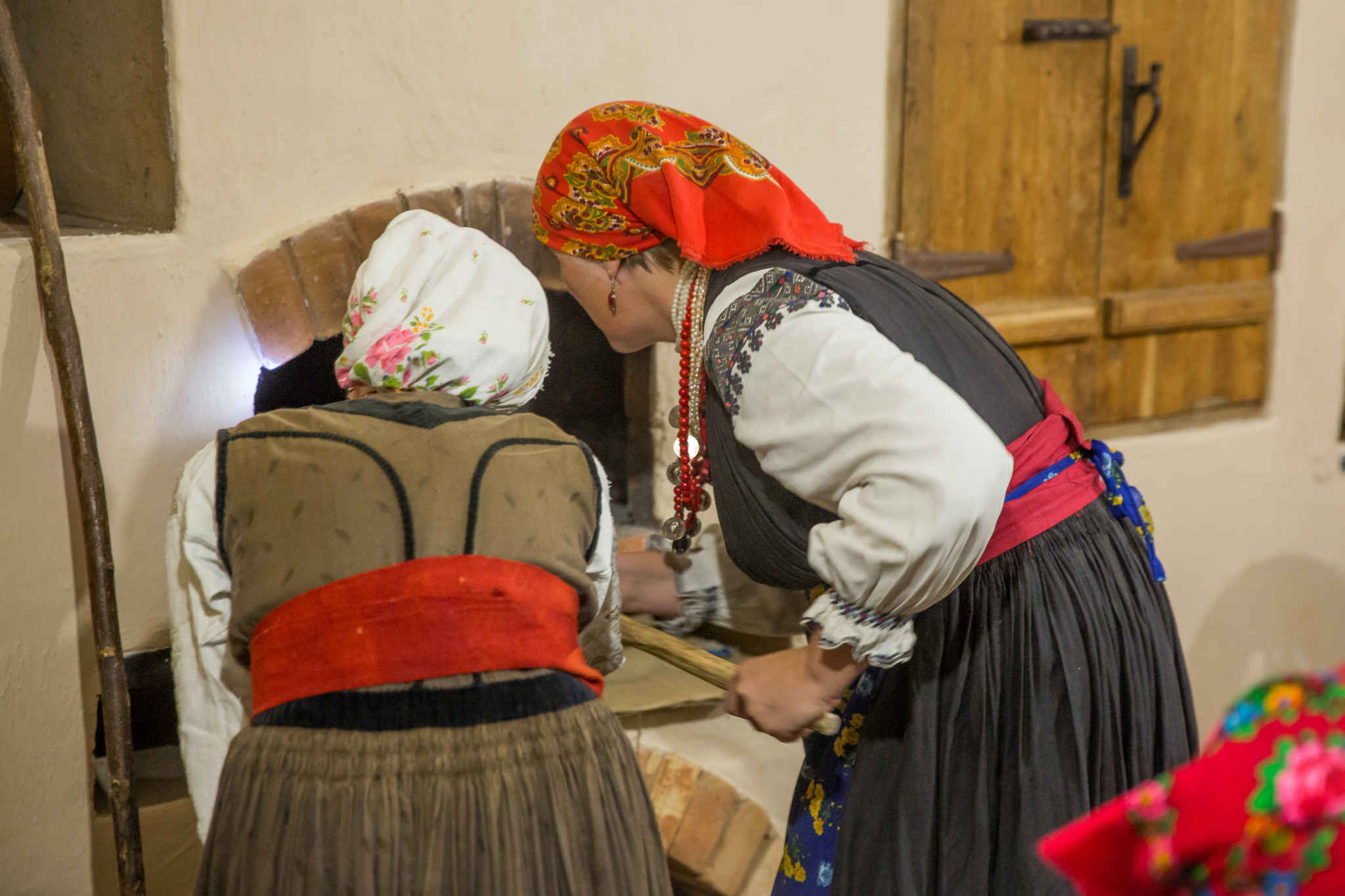
Now, the local villagers are often surprised at the lifestyle the Skoryks have chosen:
— “Why cook on a kitchen stove?” they ask. “You can go to a restaurant, or hire somebody — just pay some money, and you can have everything cooked for you. Why bother baking bread? Just go to a shop and buy some! What else do you need? Don’t you have anything to do? Why would you keep a hen? That takes so much effort. Just go and buy some sausages in a shop, pay some money, and you’re done. I go abroad to work, earn money, and then go shopping, and life is beautiful. Why would I struggle?” And this is the attitude that ruins everything.
The locals still treat all “outsiders” with suspicion, and refuse to take them seriously:
— These local families have lived in the village for generations. And then, along comes a new show-off who does everything in a new way. And they say, “What good will come of it? Ridiculous!”
— In a conservative society, everything new sparks protest. So of course, when someone comes here from the city and wants to live in a better and different way, it provides grounds for unprecedented protest. Here, unfortunately, envy plays a key negative role.
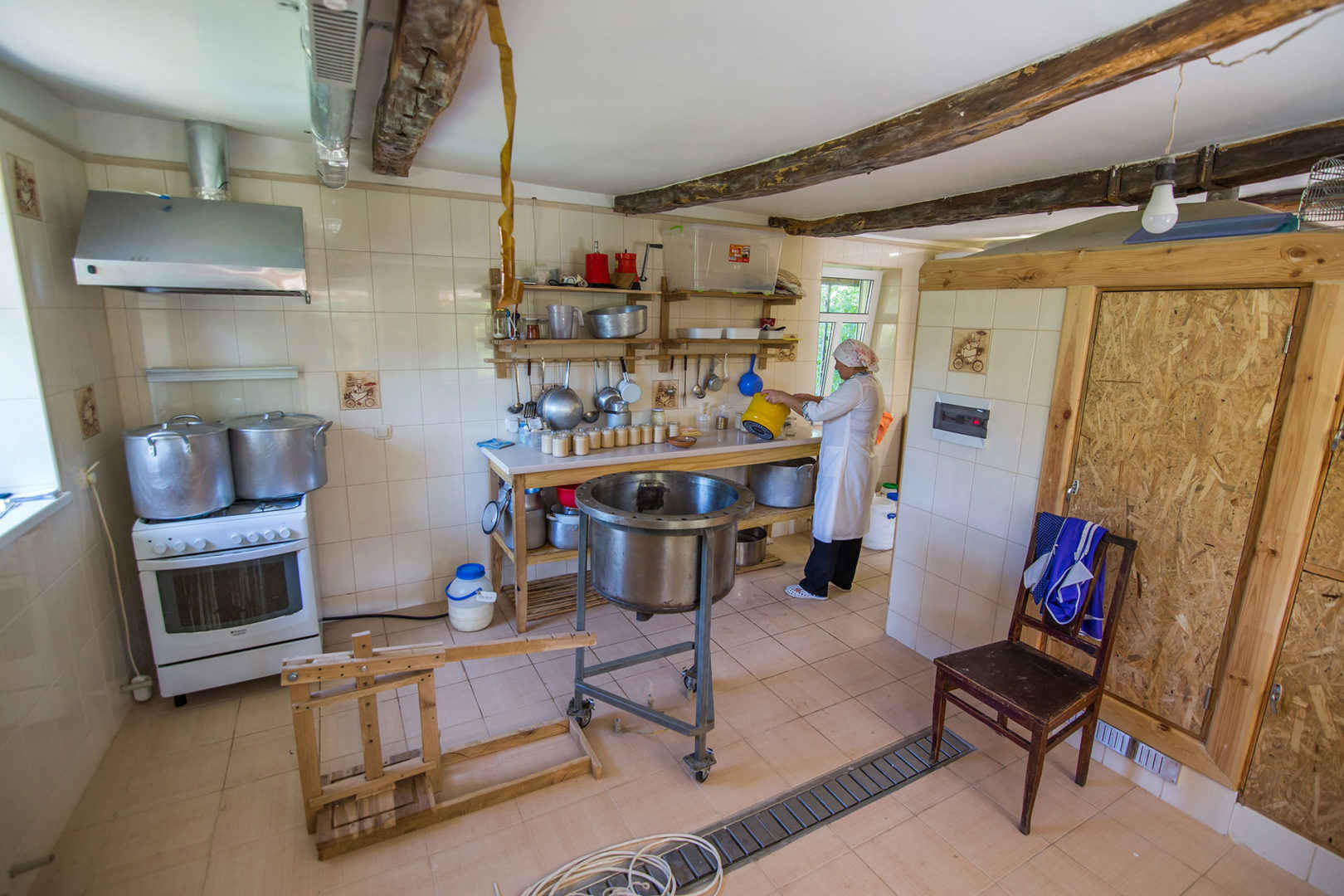
— The locals are used to their way, and can’t do things any differently. For example, we take 70 litres of milk, and our entire business relies on those 70 litres. But the villagers can’t imagine that. Some of them have 100 or even 200 litres of milk, but they just sell it for peanuts, like they’ve always done. It’s much more difficult to figure out how the manufacturing process is organised. They sell everything for peanuts, be it milk or wheat. It takes some effort to realise that it is the final product that is worth something.
Not everybody is jealous or negative about entrepreneurs like Skoryks. There are others who sincerely believe in change. However, they have no idea how to make a difference themselves. So all they can do is rely on others:
— There are people who believe that things can change for the better. But they have no idea how. They don’t understand that improvements depend on them, on every one of us. They’re hoping that somebody will come — a TV crew, or someone from the government — and everything will change, and village life will improve.
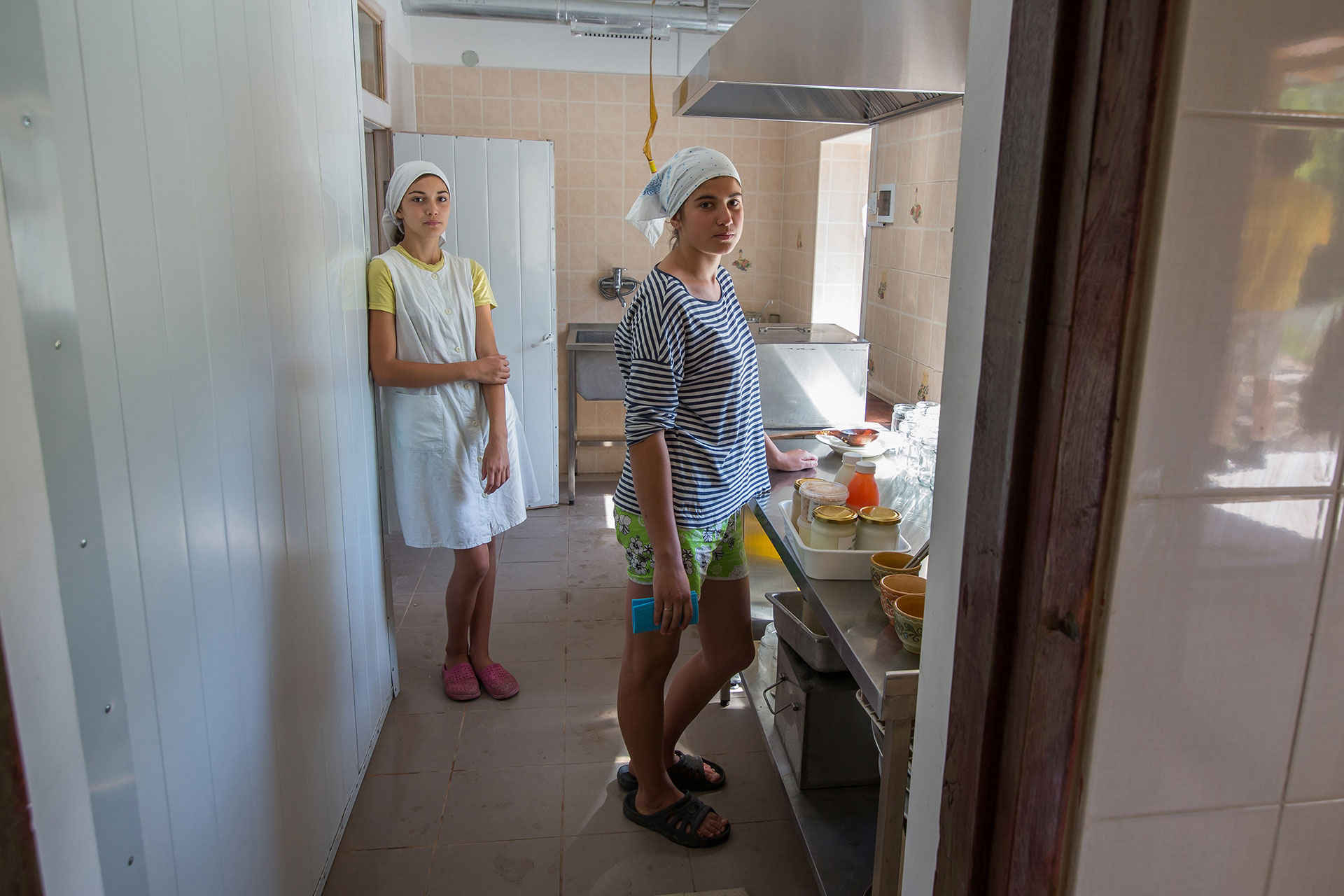
The demolition of a nation’s memory
Dmytro and Nadiia are well acquainted with Ukrainian traditions, and they maintain and try to recreate them wherever possible. They started with wearing Ukrainian traditional attire for their own wedding. The reaction of the locals, however, was not entirely positive:
— The Soviet years have cultivated a depressing complex in the minds of the locals — that all this (traditional clothing — ed.) is worthless. And when we wear traditional outfits here and now, those elderly women — who are the carriers of this culture — laugh at us: “What are those rags you’re wearing? I used to wear clothes like that when I was a young girl!”
— It’s hard to imagine just how far people’s mindset must have been twisted, to make them embarrassed about the native clothes they grew up in, lived in and wove with their fingers. It runs deep.
The 20th century represented fear, and it is because of this fear that the people refuse to remember:
— The 20th century erased our national memory. It erased diversity. It turned everybody into cogs in that horrible machine where a person can only obey orders: being told, for example, whether to dig or not to dig. And that’s it — they do nothing more than that. That’s the demolition of creativity. Although they were uneducated, it used to be the village people who were the creative ones.
By doing research into the wedding traditions of their region and by recreating these traditions, the Skoryks managed to inspire others and encourage them to revive the tradition:
— Little by little, after our wedding in 2008, other people in the area began to follow and value tradition. They’re also beginning to realise that it’s the most precious thing. It’s something to be proud of, something to be shown, and something that has incredible value.
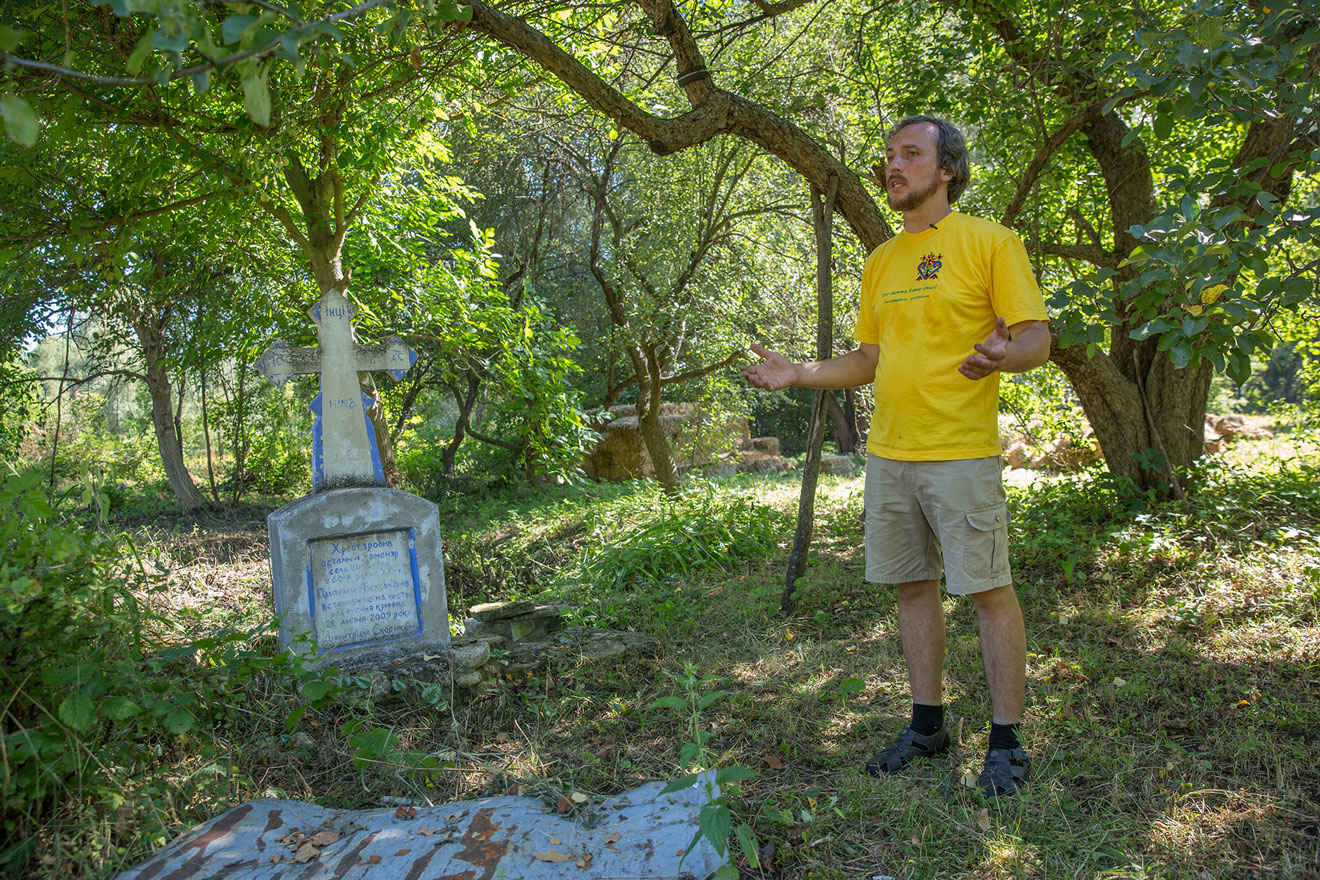
Philosophy of the natural
— I lived in a city for 35 years. And when you move here, you realise that it’s a totally different life, with different principles. We can even say it’s a different planet; everything must be done differently here. Merely being here brings you immediate joy. Eat what you’ve grown with your hands, or drink the water that flows here. And you don’t even need to turn off the tap.
— On moving here, we began to focus on what is natural and traditional, what the 20th century had turned away from. As large factories and plants appeared, humans lost touch with nature. Our food is cooked by machines, our clothes are sewn by machines, and all that is done on a massive scale. We’ve lost touch, and now our main goal is to restore the connection with nature.
If, in the modern world, it is impossible to refuse all the advantages of civilisation, the Skoryks have chosen a partial and gradual return to roots:
— In terms of food, we do all our own cooking, and grow as much of our own produce as possible. Although we don’t have time to grow and make our own fabrics, we at least wear clothes from natural materials which have been grown, not chemically produced. The same principle applies to everything. This is our choice: to keep trying to return to what ordinary people had for centuries, because city dwellers are so far from it all.
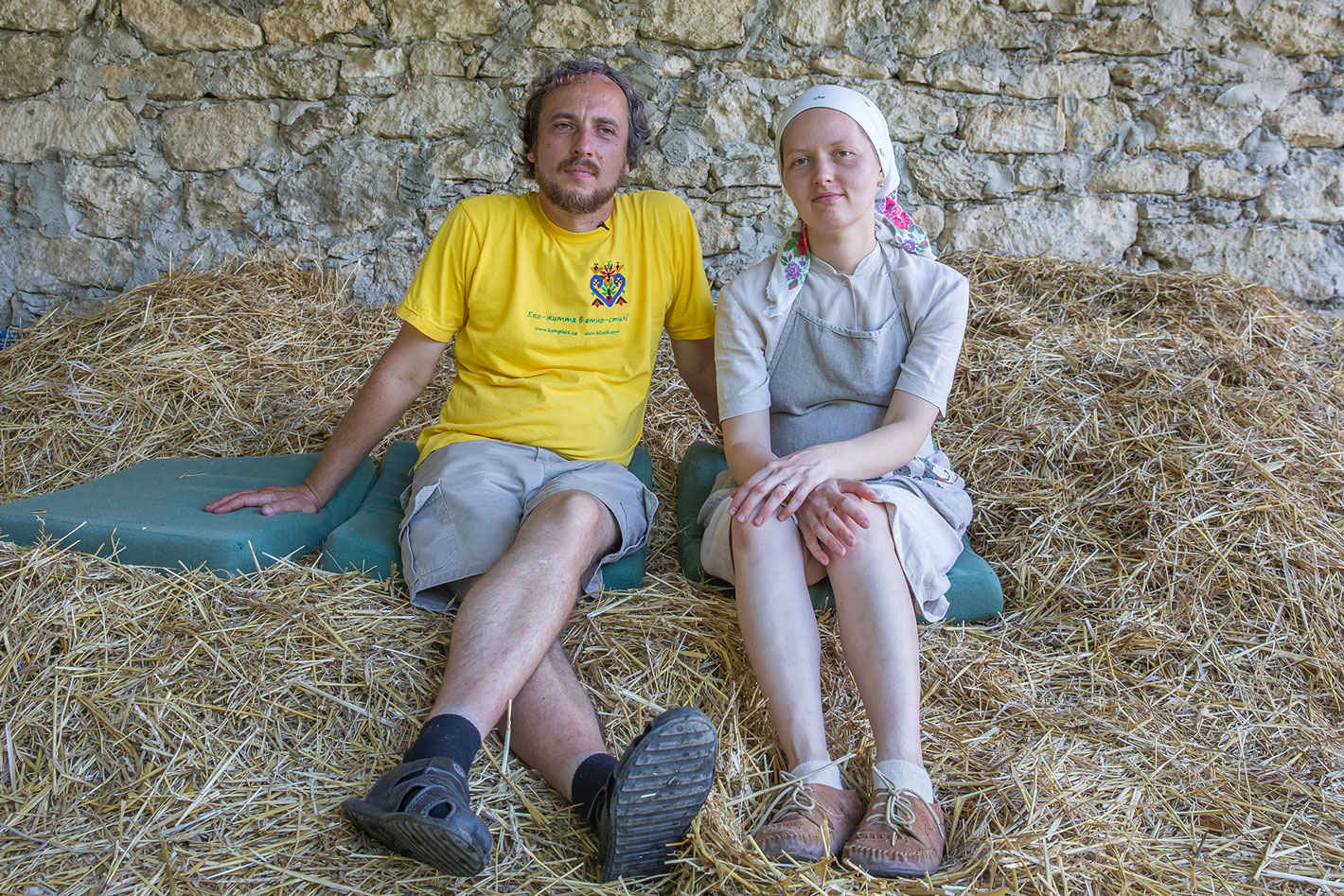
The couple have found their treasure in Shershentsi:
— Our treasure is the land. We’ve come to this land, and this land is rich. And we would like as many people as possible — people who are now living in big cities and tiny flats — to become the owners of their land, which is basically lying fallow.
Moreover, the young couple are a shining example of how all this is not just about words and ideas:
— All this keeps us fed; it provides an income. Any kind of family can live here, but you need to know which side your bread is buttered. You can do it so that it supports you and provides work for other people.
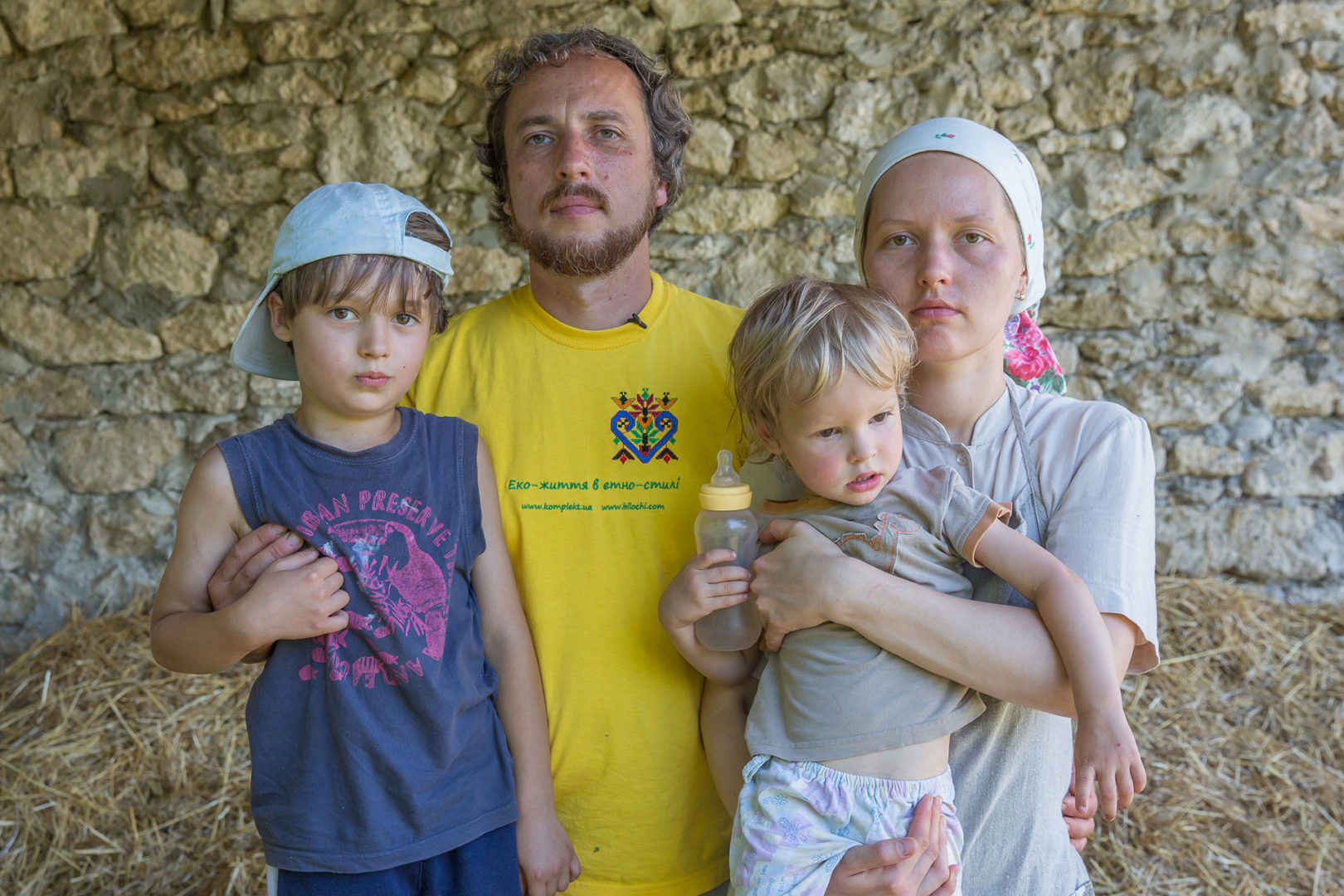
— So many people around the world live in cities and are purely consumers. But if they’re disconnected from the grid, or their water supply gets cut off, what are they going to do? Lock themselves in the supermarket? Climb a tree in the park and gnaw on nuts?
Surely everyone needs to find their place, a piece of land to call their own:
— You see, a person should live on their own land and eat their own bread. Or if I can’t grow rye, then let my neighbour grow rye, and I’ll grow peaches. I will sell him peaches, and he will sell me rye, pure and simple.
The Skoryks’ philosophy is practical: it goes beyond mere words. They are returning to traditions that have been nurtured for centuries. They are searching not for the past, but for the native.

